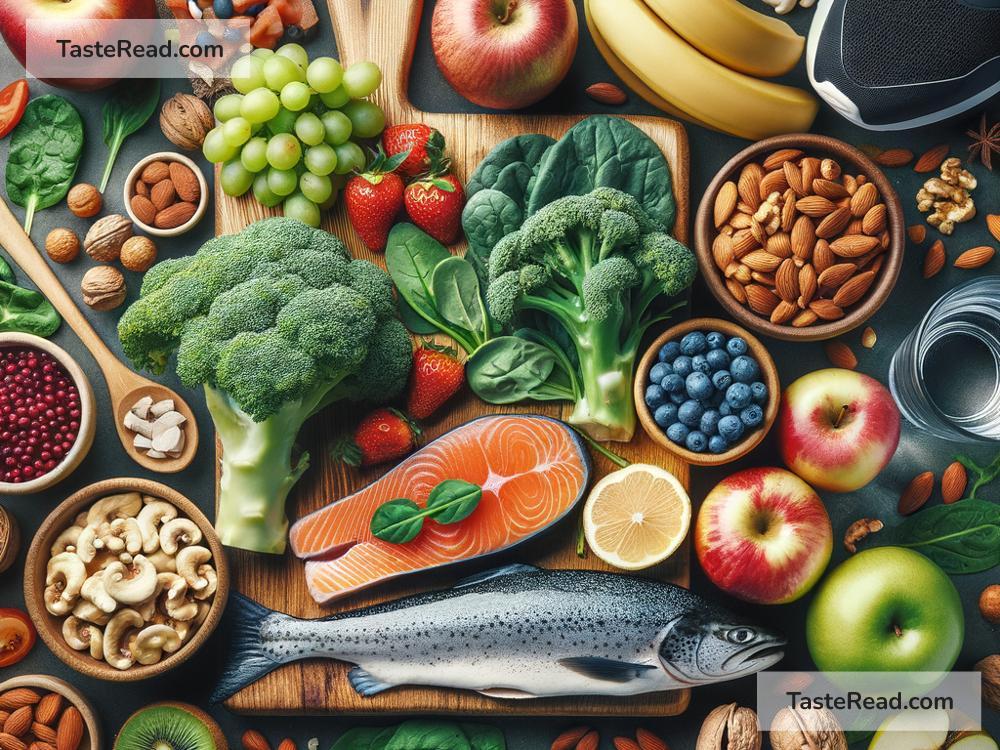Foods That Improve Ligament Flexibility
Ligaments play an important role in our joints and overall mobility. They are tough bands of tissue that connect bones to each other and keep our joints stable. However, ligaments also need a certain level of elasticity and flexibility to allow smooth movement. If your ligaments are tight or weak, you may experience stiffness, reduced flexibility, or even injuries. Fortunately, what you eat can contribute to stronger, more flexible ligaments.
In this blog, we’ll talk about some amazing foods that can help improve ligament health and flexibility. Let’s dive in!
1. Vitamin C-Rich Foods: Boost Collagen Production
Collagen is the key protein found in ligaments. To keep your ligaments strong and flexible, your body needs plenty of collagen, and vitamin C is essential for collagen production. Foods that are high in vitamin C can boost your body’s ability to create collagen and repair damaged tissues.
Best Vitamin C Foods:
- Citrus fruits like oranges, lemons, grapefruit, and limes
- Berries such as strawberries, blueberries, and raspberries
- Kiwi
- Bell peppers
- Pineapple
These foods are also packed with antioxidants that reduce inflammation and help protect ligaments from wear and tear.
2. Omega-3 Fatty Acids: Reduce Inflammation
Ligaments can become inflamed after intense physical activity or due to injury. In such cases, eating foods rich in omega-3 fatty acids can help reduce inflammation and improve flexibility.
Best Omega-3 Foods:
- Fatty fish like salmon, mackerel, and sardines
- Chia seeds
- Flaxseeds
- Walnuts
Such foods not only soothe your ligaments but also promote joint health overall.
3. Protein-Rich Foods: Build Strong Ligaments
Just like muscles, ligaments need protein to stay strong and functional. Protein is the building block that helps repair ligament tissue and ensures optimal elasticity.
Best Protein Sources:
- Lean meats such as chicken or turkey
- Eggs
- Legumes like lentils, chickpeas, and beans
- Greek yogurt or other high-protein dairy products
- Tofu and other soy-based products
Make sure to include high-quality protein in every meal to keep your ligaments healthy and flexible.
4. Magnesium-Rich Foods: Improve Muscle and Ligament Function
Magnesium plays a critical role in keeping your muscles and ligaments relaxed. Tight ligaments often lead to restricted movement or strain, but magnesium-rich foods can ease tension and improve flexibility.
Best Magnesium Foods:
- Dark leafy greens like spinach, kale, and Swiss chard
- Bananas
- Avocados
- Pumpkin seeds
- Almonds and other nuts
Adding these foods to your diet can help you increase the range of motion in your ligaments while keeping them elastic.
5. Foods Rich in Zinc: Promote Healing
If you’ve experienced ligament injuries or strain, zinc is essential for repair and recovery. Zinc helps your body regenerate tissues, repair ligament damage, and maintain their strength.
Best Zinc Sources:
- Shellfish like oysters, shrimp, and crab
- Beef and pork
- Chickpeas
- Sunflower seeds
- Whole grains like oats and quinoa
Eating zinc-rich foods regularly ensures your ligaments heal efficiently if they’re ever damaged.
6. Bone-Building Foods: Support Ligament Connection
Ligaments connect to bones, so strong bones are vital for poor ligament function and flexibility. Calcium and vitamin D are key nutrients for healthy bones, which indirectly support ligament health by keeping them anchored.
Best Bone-Building Foods:
- Milk and dairy products like cheese and yogurt
- Fortified plant-based milk (soy, almond, etc.) with added calcium
- Leafy greens like bok choy and broccoli
- Fish with bones such as sardines
- Egg yolks
Also, spend time in the sun to help your body produce vitamin D naturally!
7. Hydrating Foods: Prevent Tightness
If your body is dehydrated, your ligaments can become stiff or lose flexibility. Drinking water is essential, but you can also eat water-rich foods to maintain hydration for your ligaments and joints.
Best Hydrating Foods:
- Cucumber
- Watermelon
- Celery
- Tomatoes
- Zucchini
These foods keep your ligaments lubricated, improving both flexibility and overall joint health.
8. Gelatin and Bone Broth: A Collagen Supercharge
Gelatin and bone broth are natural sources of collagen, making them excellent for your ligaments. These foods can help improve the elasticity of ligament tissues and reduce the risk of injury.
How to Include Gelatin and Bone Broth:
- Drink warm bone broth as a soup or beverage.
- Add gelatin powder to smoothies or desserts.
These options boost collagen intake and directly benefit ligament strength and flexibility.
Final Thoughts
Improving ligament flexibility isn’t just about stretching exercises—it also involves eating the right foods. Include vitamin C-rich fruits, omega-3 fatty acids, protein-packed meals, magnesium, zinc, and collagen-boosting foods in your regular diet. Hydration is equally important, so eat water-rich foods and drink plenty of fluids. When combined with a healthy lifestyle, these nutrient-rich foods will help you keep your ligaments strong, flexible, and ready for action.
Say goodbye to stiffness and keep your body moving effortlessly with these ligament-friendly foods!


